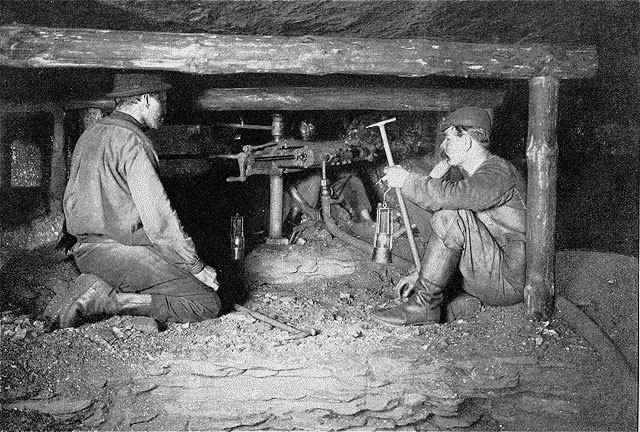Mechanical Excavation in a Westphalian Mine (1905)
Abstract
Applied knowledge involves transmitting knowledge constituted in one context to a different context in order to solve a problem or improve a practice. In the modern period, Germans across the social spectrum availed themselves of the wonders of applied knowledge: farmers used special equipment to bale hay, housewives employed chemical pesticides to kill moths in their closets, and office employees relied on filing cabinets, inkwells, paperclips, and all the other accessories of Germany’s famously efficient bureaucracies. But perhaps no type of worker benefited more from applied knowledge than miners. By the late Middle Ages, salt and other minerals were mined in the German lands from holes dug in the ground; later, iron ore and coal emerged from enduring pits in the Ruhr Valley and elsewhere to supply Germany’s highly productive heavy industries. But the work required to extract these materials laid miners to waste. Mining as a human activity was never easy (or safe), but excavating technologies, like the drill shown here, could at least spare workers from the most strenuous and dangerous tasks.
Source

Source: “Dans une mine de Westphalie,” photograph by Zirkler from the article, “La Greve des Mineurs de Westphalie,” L’Illustration, no. 3231, January 28, 1905.